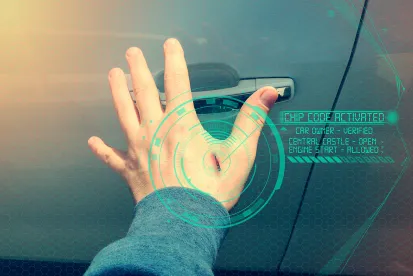The Illinois Supreme Court rejected a potential defense to claims of alleged violations of the Illinois Biometric Information Privacy Act (BIPA) when it held that the exclusivity provisions of the Illinois Workers’ Compensation Act (IWCA) do not bar claims for statutory liquidated damages brought by employees against their employers under the BIPA. McDonald v. Symphony Bronzeville Park, No. 126511 (Feb. 3, 2022).
Background
The plaintiff, Marquita McDonald, claimed that her former employer, Symphony Bronzeville Park, LLC, required its employees to provide purported biometric information through its use of a fingerprint-based timeclock system, but it did not follow certain BIPA requirements. McDonald alleged that, through the use of its timeclock system, Symphony collected employees’ biometrics without properly: (1) informing them in advance and in writing of the specific purpose and length of time for which their fingerprints were being collected, stored, and used; (2) providing a publicly available retention schedule and guidelines for permanently destroying the scanned fingerprints; and (3) obtaining a written release prior to the collection of their fingerprints.
Symphony moved to dismiss McDonald’s claims on the ground that they are barred by the exclusivity provisions of the IWCA, which provides the exclusive means by which an employee can recover against an employer for a negligently caused work-related injury.
The Circuit Court of Cook County rejected the argument and denied Symphony’s motion to dismiss. On appeal, the Illinois Appellate Court for the First Judicial District affirmed the decision of the Circuit Court. The First District remarked that it “fail[ed] to see how a claim by an employee against an employer for liquidated damages under the Privacy Act – available without any actual damages being alleged or sustained and designed in part to have a preventative and deterrent effect – represents the type of injury that categorically fits within the purview of the Compensation Act, which is a remedial statute designed to provide financial protection for workers that have sustained an actual injury.” Accordingly, the First District concluded that a claim against an employer alleging the violation of an employees’ statutory privacy rights under the BIPA is not a compensable claim under the IWCA and, therefore, is not subject to preemption. The First District expressly declined to decide whether BIPA claims alleging actual harm and actual damages are preempted as the question was not before the court.
After Symphony sought further appellate review, the Illinois Supreme Court agreed to hear the case.
Supreme Court Decision
The Illinois Supreme Court decided the IWCA does not preempt BIPA claims.
In affirming the First District’s decision, the Illinois Supreme Court agreed that McDonald’s claims for liquidated damages under the BIPA do not constitute claims for workplace injuries that are compensable under the IWCA. The Court stated, “The personal and societal injuries caused by violating the Privacy Act’s prophylactic requirements are different in nature and scope from the physical and psychological work injuries that are compensable under the Compensation Act. The Privacy Act involves prophylactic measures to prevent compromise of an individual’s biometrics.”
The Court also noted that the plain language of the BIPA, which references a “release executed by an employee as a condition of employment,” supports a conclusion that state lawmakers did not intend BIPA claims brought by employees to be preempted by the IWCA’s exclusivity provisions.
In a concurring opinion, Justice Michael Burke agreed “with the majority that the injury as alleged is not compensable under the Compensation Act because, quite simply, there is no injury” and “any risk of future injury is alleviated by the availability of permanent injunctive relief in the underlying action.” Justice Burke also noted that McDonald’s amended complaint sought recovery of liquidated damages, not any actual damages and “[h]ad McDonald persisted in her allegation of mental anguish, the exclusivity provisions of the Compensation Act would have barred her claim.”





 />i
/>i
